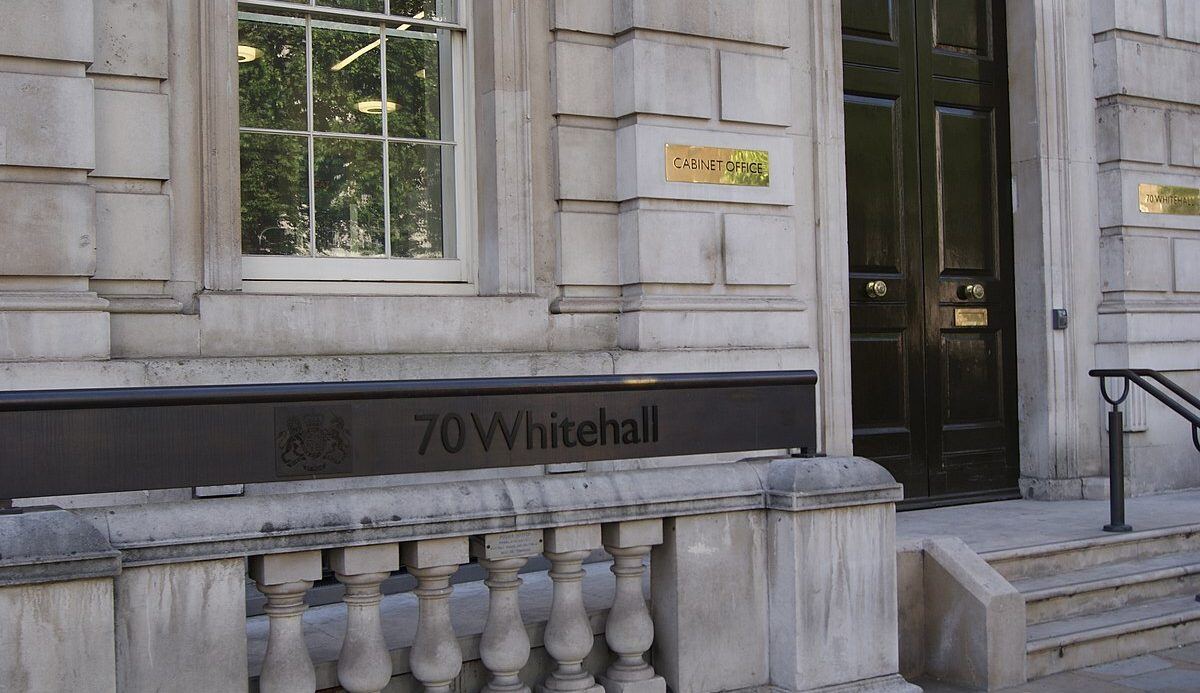Trade Strategy 2025
Since this government took office, and in line with the intentions of this Trade Strategy, we have prioritised economic growth. For British businesses, that means easing the burden on them as they trade abroad. We have finalised negotiations on a landmark Free Trade Agreement with India, improved our trading relations with the EU through a suite of agreements including an SPS agreement that will ease checks on exports to the single market, and we were the first country to agree the framework of an economic deal with the US following President Trump’s inauguration. We are laying the ground for long term partnerships that will support our businesses to thrive.
The UK has thrived in the past – and will thrive in the future – as an open trading nation. But with the world trading system as we have known it today facing a series of disruptions and shocks, we need a new and more strategic approach to how we sell to and buy from the world.
The mood has taken a protectionist turn around much of the world, threatening the familiar rules of the trading game and marginalising aspects of the multilateral architecture. These are not all changes the UK would have chosen, but it is our duty to, first, understand them – and then chart a pragmatic way forward to allow traders across every corner and every nation of the UK to survive and thrive in the new world. The growth-boosting deals the government has very recently struck with India, the world’s most-populous country, and the US, which remains the world’s most-important economy, illustrate how we are already doing exactly this. They provide valuable templates for discussions with many countries beyond. Meanwhile, the new Strategic Partnership with our closest neighbour and trading market, the EU, will further support the context in which Britain can thrive by being open for business.
As well as an unsparing eye on the world as it is, a serious trade strategy needs to be rooted in a clear understanding of the type of economy the UK sets out with. We have significant strengths – above all as a superpower in services, in which global trade is particularly buoyant – that should enable us to face the future with confidence. We also have many high-end manufacturers whose expansion through foreign sales can boost productivity and growth. And there are great opportunities coming from transformative changes in Artificial Intelligence and our Clean Energy Superpower transition.
These sorts of global markets are rapidly expanding and, for UK businesses, effectively boundless. Clearing every possible obstacle in the way of our firms selling into them is – alongside, and in tandem with, our modern Industrial Strategy – critical to raising overall economic growth and getting more money into the pockets of working people in every part of the UK. This much is clear, but it is evident, too, that in order to advance those trading sectors with most promise for UK growth, we are going to need a more varied – and smarter – set of trade tools than we have had in the past.
When it comes to negotiations, we need to be steely but also nimble and opportunistic. In a world where both digital sales and the global trade in services are booming, bespoke accords to govern the protocols of e-commerce or mutual recognition of qualifications could sometimes be achieved more rapidly than economy-wide Free Trade Agreements (FTAs), which are hugely complex and sometimes painfully slow to negotiate. FTAs absolutely retain a central place in our armoury — the big win of the UK-India FTA shows the power they still hold. But the UK-US economic deal is a slightly different form of deal, the opening of a conversation rather than its conclusion, and somewhat more tightly drawn around some more obvious areas of mutual economic agreement. And yet it is also pragmatic – both directly in boosting growth and protecting jobs in crucial sectors such as car manufacturing, and indirectly in creating a basis on which further negotiations can build later on. Whilst still pursuing comprehensive FTAs with strategic partners, in any set of negotiations we will make a pragmatic and open-minded assessment about what form of agreement stands the best chance of making a serious and early contribution to exports and growth.
In an increasingly unstable and volatile world, we also need to be agile in the face of a whole range of potential future shocks – including overseas conflict, climate disruptions, physical threats on our shores, international financial contagion or humanitarian crises. The building and maintenance of a strong economy – as well as delivery of the government’s Missions and our Plan For Change of a decade of national renewal which that strong economy is needed to support – relies on us developing robust responses to all possible threats to prosperity. In the context of trade, this requires in general terms that we:
- Confront the threat that protectionism poses to the UK by significantly upgrading our trade defence toolkit
- Tackle trade-distorting practices, such as dumping, that increasingly threaten our businesses at home, going beyond our traditional definitions of unfair trading practices
- Take the earliest opportunity to overhaul the UK’s trade remedies system to make it more accessible, assertive and agile
- Monitor and respond to turbulence in global sectors – and global supply chains – that are crucial to the UK’s economic and more general security. Alongside the new Supply Chains Centre that we announced in the Industrial Strategy, we will create an Economic Security Advisory Service to further these aims, and will both work hand-in-glove with business to deliver on them
In fleshing out these aims, alongside our ambitions to boost exports, we have worked closely with businesses and stakeholders to understand their changing needs. Our open call for evidence mailbox received over 220 submissions from business, representative organisations, civil society and academia, and we have spoken to companies and other stakeholders across the country. Drawing on these conversations, this Trade Strategy both points the way to further opening of opportunities in foreign markets, and also offers the very practical support that established and aspiring trading firms say that they need. This includes:
- Tirelessly working to reduce barriers to trade with many more markets, building on our recent success with the twin giants, India and the US, and supporting UK regulators to remove barriers to businesses trading abroad, creating a dedicated new “Ricardo Fund” for this purpose
And a package of support for businesses seeking to boost trade, some of which was also highlighted in our Industrial Strategy:
- Expanding the capacity of our export credit agency – UK Export Finance or UKEF – by £20bn to £80bn. Export credit guarantees and other support are a critical way the government can help business secure foreign orders and finance, so we are resolved to provide more of it. At the same time, we will make UKEF more accessible, including by creating clearer online routes into the support it offers
- Modernising, simplifying and unifying the export support services, and particularly digital export support services, that we offer businesses. Companies tell us that the material and advice offered on the government’s website is hard to find, cumbersome to navigate, and sometimes short on information. A new, and consistently digital-first approach, will provide clearer, more accessible and more customer-focused guidance for exporters
- Cutting through red tape at the border by harnessing the benefits of digitalisation. The UK was the first G7 country to put electronic trade documents on the same legal footing as paper documents, but – until now – we haven’t exploited the potential this gives to smooth the passage through the border. We will pilot Digital Trade Corridors with leading European Markets so that this potential can finally be seized, and develop a new programme to help smaller businesses seize the advantages of escaping the physical paper-chase
For all the challenges of the current trading environment, trade between countries remains one of the most powerful forces for prosperity that exists – both here in the UK and around the world. Over the last few decades, open markets have lifted hundreds of millions out of absolute poverty around the world. But the gains have not accrued evenly between or within nations, including our own. Unfettered competition can risk undercutting environmental and labour standards. So we need an agenda for trade that is not only free, but also fair, accountable and – insofar as is practical – governed by rules. In furtherance of these aims we will:
- Launch a review of our approach to responsible business conduct, focusing on the global supply chains of businesses operating in the UK
- The UK will work alongside our partners and allies to negotiate and agree an ambitious agenda for future plurilateral agreements which address the challenges faced by the multilateral system
No serious Trade Strategy can end with a document that is printed, then left to gather dust. Meaningful strategy is always about sustained action and engagement. We resolve to drive forward the many explicit proposals contained in these pages and will soon set out criteria by which business and the wider world outside of government can hold us to account for delivery.
Read the full strategy below.
Source: UK Government: https://www.gov.uk/government/publications/uk-trade-strategy
The Critical Supply Group consists of companies and professionals committed to secure and resilient critical supply chains. CSG is managed by MAP UK & International. For more details, including how to get involved, or to make contact with any of the entities involved, please email info@mapukinternational.com.
.png?quality=high&width=300&height=141&name=CSG%20Logo%20c%20(1).png)


